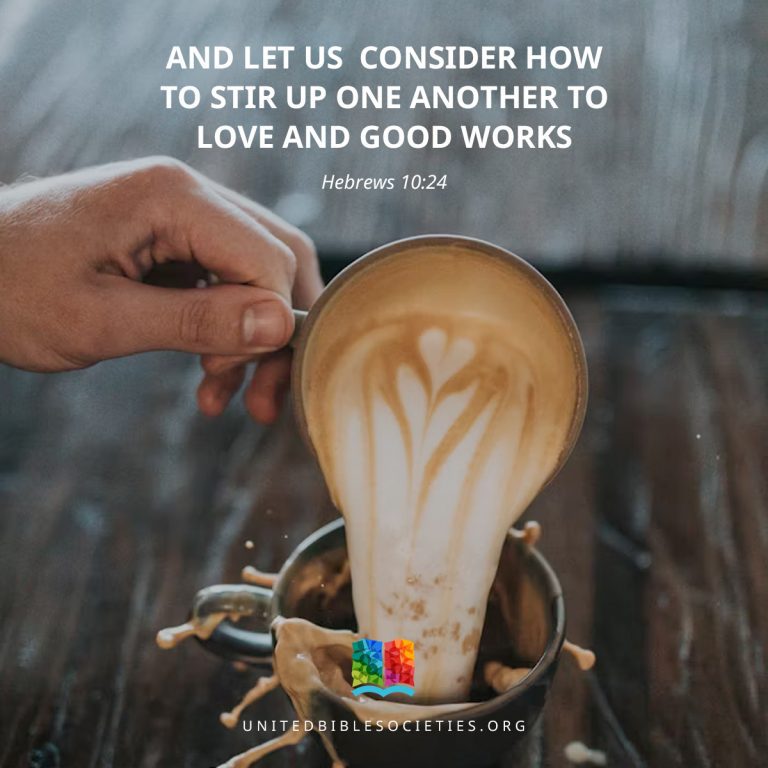1 Every high priest is appointed to help others by offering gifts and sacrifices to God because of their sins. 2 A high priest has weaknesses of his own, and he feels sorry for foolish and sinful people. 3 This is why he must offer sacrifices for his own sins and for the sins of others. 4 But no one can have the honor of being a high priest simply by wanting to be one. Only God can choose a priest, and God is the one who chose Aaron.
5 This is how it was with Christ. He became a high priest, but not just because he wanted the honor of being one. It was God who told him,
“You are my Son, because today
I have become your Father!”
6 In another place, God says,
“You are a priest forever
just like Melchizedek.”
7 God had the power to save Jesus from death. And while Jesus was on earth, he begged God with loud crying and tears to save him. He truly worshiped God, and God listened to his prayers. 8 Jesus is God's own Son, but still he had to suffer before he could learn what it really means to obey God. 9 Suffering made Jesus perfect, and now he can save forever all who obey him. 10 This is because God chose him to be a high priest like Melchizedek.
Warning against Turning Away
11 Much more could be said about this subject. But it is hard to explain, and all of you are slow to understand. 12 By now you should have been teachers, but once again you need to be taught the simplest things about what God has said. You need milk instead of solid food. 13 People who live on milk are like babies who don't really know what is right. 14 Solid food is for mature people who have been trained to know right from wrong.
1 Ŋen ŋanṯa nələŋ pred̶ noɽra nəkana nuṯənu eled̶a na nëɽənu ṯa anid̶i ŋəmëɽria ŋə-Rəmwa ŋen ŋanṯa led̶a, na ṯa anənaid̶e d̶ənaid̶ia na d̶əɽəd̶ənia ŋen ŋanṯa d̶əŋgəd̶einia ŋen ŋeicia. 2 Gënəŋu gaɽwad̶aṯa gəd̶ərnaṯaralo led̶ala laijəba ŋen na led̶ala ildi ləfo mənna ŋen ŋanṯa gënəŋu bəɽan gëbia. 3 Ŋen ŋanṯa gënəŋu gëbia, ŋen d̶eṯəm ṯa gënəŋu aŋənaid̶e d̶əɽəd̶ənia ŋen ŋanṯa ŋen ŋəlëɽəŋu ŋeicia ŋen ŋarno gənaid̶o d̶əɽəd̶nia ŋen ŋanṯa ŋen ŋeicia ŋəled̶a. 4 Na ed̶a gero gənəŋ gəbəd̶ənia eləŋ goɽra gəkana bəɽan d̶əd̶əñiad̶a ŋen, orn Rəmwa rëɽəma ŋen ŋarno rëɽu Arun.
5 Nṯia com Almasiya gero gəneinia ŋaɽrwa ṯa gid̶ənu eləŋ goɽra gəkana bəɽan, orn Rəmwa rëɽəma irri reiṯəma ṯa,
“Aganəŋa agaɽo Id̶ia gəlëɽəñi, d̶əñid̶i egaləŋaŋa.”
6 Na com ndrəmeiṯi alo ywomən egad̶am gə-Rəmwa ṯa,
“Agid̶i ŋaɽeṯe kana bəɽəbəte ŋen ŋarno Malkisaḏək.”
7 Ŋen Yesu gəfo alo ṯaŋəṯurṯu Rəmwa irri rəɽwad̶aṯa rəmëbəria eŋəɽaiñ nəŋekeɽəd̶e Rəmwa kaiñ oliaga goɽra na ŋwalŋa, na ŋen ŋanṯa gëd̶əñia Rəmwa rënəŋu ranaṯəma. 8 Gënəŋu gaɽo Id̶ia, orn gërrəŋeinu d̶ənna ŋenŋa ŋubwa ŋeicia gënəŋu gəneinu, 9 na ŋen ŋanṯa gid̶ənu gəɽiñəd̶einu, gënəŋu nəŋəɽeṯe d̶ëbəria d̶əbəɽəbəte eled̶a pred̶ ildi ləmanna, 10 ŋen ŋanṯa Rəmwa rid̶əma gəɽo eləŋ goɽra gəkana ŋen ŋarno Malkisaḏək.
Ŋen d̶eṯəm ṯa led̶a alɽad̶aṯe nëiñua eŋen ŋ-Almasiya
11 Nanda ñagwonaṯa ñagəndəlwaɽəṯia ŋen ŋwaiña eŋen iŋi, orn ŋen ŋabɽwaŋəno ṯa ñagəndërrəŋaicia ŋen iŋi ŋopia, ŋen ŋanṯa ŋəṯəɽa eŋalo ŋaiñələŋəno. 12 Đəñid̶i ŋen ŋafo d̶eṯəm ṯa ñagəbërrəŋaicia led̶a ɽrəto ŋen, orn ñagamulu ñagwonaṯa ed̶a gənəŋ gəndërrəŋaicia olia gəŋen ŋananoŋ ŋə-Rəmwa. Ñagwonaṯa ŋan məldin, gerṯe aicəba. 13 Ed̶a gənəŋ igi gəmicinia ŋanŋa gënəŋu gaijəba ŋen ŋəd̶urwaṯo. Gënəŋu gaɽo ŋere ŋəta məldin. 14 Orn aicəba galed̶a loɽra, ŋen ŋanṯa d̶irnḏeicia ŋen ed̶en ṯa alɽwad̶aṯe lələŋeṯa ŋen ŋəŋəra na ŋeicia.

